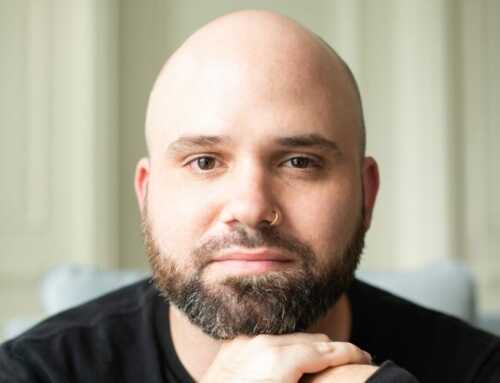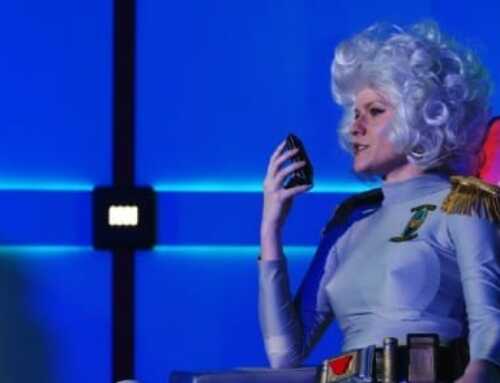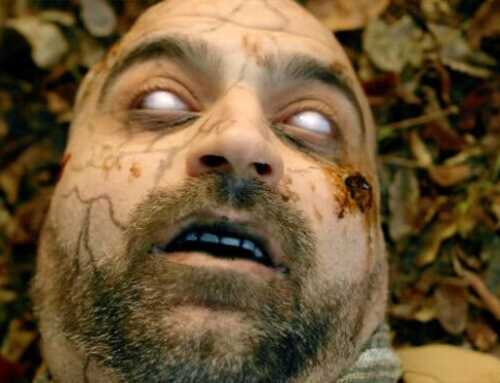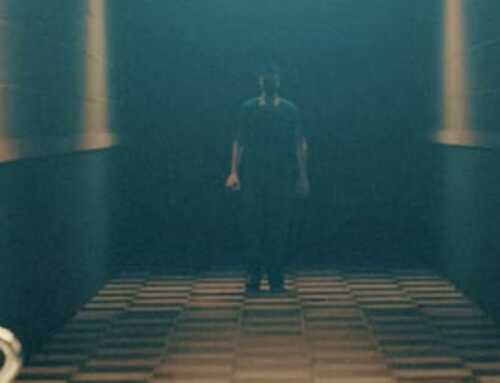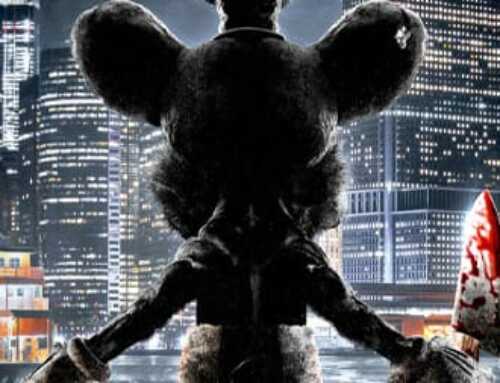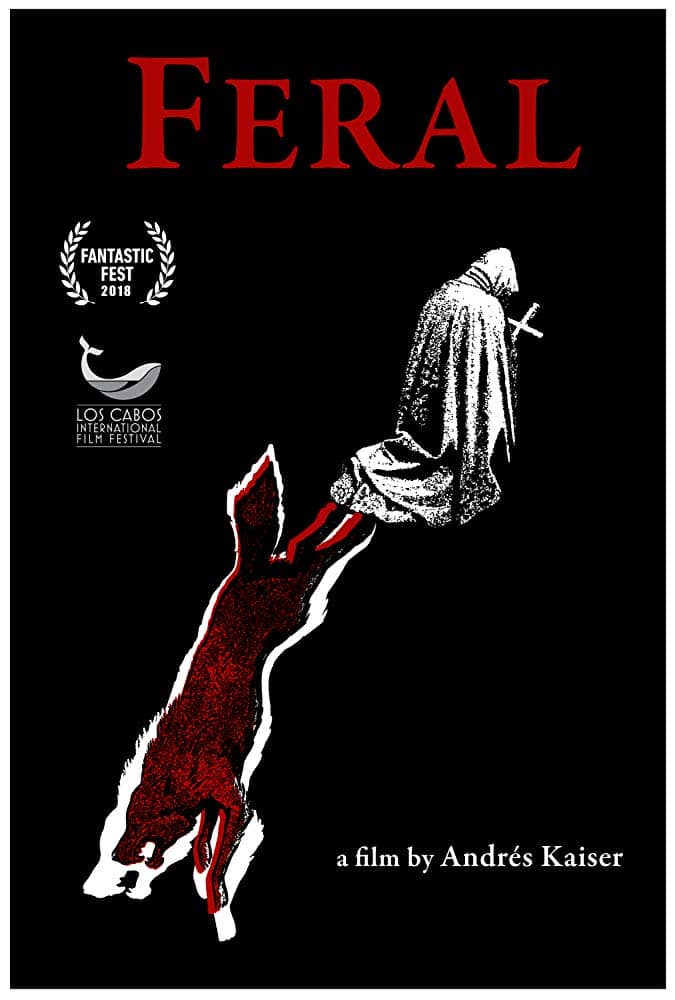 The mountains of Oaxaca harbor the remains of a ravaged and burnt shelter, once home to a psychoanalyst priest who used it to look after savage children, trying to re-integrate them into society. Through videotape diaries and interviews, the truth of what happened is shockingly revealed.
The mountains of Oaxaca harbor the remains of a ravaged and burnt shelter, once home to a psychoanalyst priest who used it to look after savage children, trying to re-integrate them into society. Through videotape diaries and interviews, the truth of what happened is shockingly revealed.
In Andrés Kaiser’s quiet thriller, Feral (2018), the forests of Oaxaca are used as a backdrop to the story of a psychological experiment which ends in tragedy. With a narrative steeped in religious themes and chilled by secrecy and sin, the film is a hopeful prayer for absolution that ends in a baptism by fire. As the feature film debut of writer/director, Andrés Kaiser, Feral seems to be an awakening of good things to come from a budding director.
Feral tells the story of a deeply religious man, Juan Felipe (Hector Illanes), first beginning with his tumultuous childhood where he was repressed by his overbearing and Catholic-devout mother, leading to his entrance into the priesthood, and to his eventual self-exile into the mountains of Oaxaca — all told from both himself, in found footage video, as well as documentary-style interview footage from his friends and neighbors. According to one of his friends, Juan Felipe was truly a believer in god, however, he was one that could not go into a church nor be a pastor. Juan Felipe had a childhood filled with extremes; his mother, described as a bitch by his friends, would not allow him to speak or play, and forced him to go to mass every single day. Despite an extreme introduction to religion, Juan Felipe joined a priesthood, but it was one that would challenge his perception towards religion as his sect experimented with psychoanalysis. With the closing of his monastery, Juan Felipe went to live a quiet life as a hermit in the hills of Oaxaca, until one day, he stumbles upon a child living alone in the wild, Cristobal (Farid Escalante Correa), whom he captures and takes back to his cabin, devoting himself to teaching him the gift of language and humanity. Upon further exploration of the forests of Oaxaca, Juan Felipe finds yet two more wild children, chained up in a cave. Again, he takes them back to his home, happily growing his family and his opportunity to experiment. However, as the town outside the forest begins to whisper of the monster capturing children, Juan Felipe’s intentions come under fire.
Premiering at last year’s Fantastic Fest to audience and critical acclaim, Feral is labeled as a thriller but was more so a quiet melodrama. That is not to take away from the film’s successes, as it at least is a suspenseful melodrama thanks to the found footage and documentary structure, which ended up leaving questions unanswered since the audience is limited to these points of view, adding to the themes of isolation and secrecy within the narrative. The performances were fittingly authentic, I was particularly impressed by the child actors — Farid Escalante Correa, Adriana Burgos, and José Ángel García — who were tasked with playing characters with extreme developmental disabilities. And Hector as Juan Felipe was a truly pleasant surprise, as he channeled both god and Noam Chomsky in his effort to bring language to these seemingly tragic children, only to be the ultimate cause of their newly formed family’s demise.
I am not sure if Kaiser exactly hails from this densely forested area of Oaxaca, but the way he immerses the story in these mountainous and rural settings with the video-style of filming helps to cement the narrative in mystery and suspense. I only have one small gripe with this film — I genuinely like found footage’s shaky camera work, the look of authenticity and dated-ness, and depending on the film, the slight feeling of voyeurism can make a premise yet more enticing. But! What irks me with this style is when a film does not fully commit to that format, and towards the end of the film, Feral falls into this inconsistency during one of its most enlightening scenes, with the camera filming and showing the audience background story without being operated by Juan Felipe like in the rest of the movie. Though the scene was necessary to audience understanding and insight, it is a cheat to the rest of the film’s structure, though only a minor flutter within its otherwise consistently beating pulse. It is not scary, it is not thrilling, but it is a good movie and definitely worth a watch!
Feral offers an awakening to director Andrés Kaiser and modern Mexican independent cinema. It feels like a fresh voice on the old topic of the religious horror, and it can serve as a cinematic reminder that no good deed goes unpunished. As Andrés Kaiser eases us into his viewpoints as a Mexican director, and seemingly to his particular interest in religion with his next feature-length project slated to be a horror about nuns and possession (squeal!), Feral is his gentle but statement-making hello to horror and film enthusiasts.
FERAL is screening as part of the HOLA MEXICO Film Festival at Regal Cinema LA Live – Get Tickets here.
| Feral | ||
| RATING: | NR | FERAL (2019) | Teaser Trailer | HD |
| Runtime: | 1 hr 41 Mins. | |
| Directed By: | ||
| Written By: |
|
|


